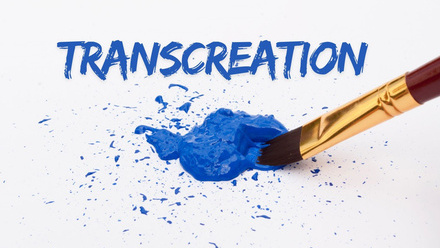The translators' seal of approval - ISO 17100:2015

Written by Amy Reid
Amy Reid, Words in Translation Account Manager, discusses the benefits of ISO 17100 certification.
Words in Translation is one of the few ITI corporate members to hold the translation certification, ISO 17100:2015. As with all standards, for WIT, quality is key; it’s all well and good shouting about it from the rooftops but, without the proof, is anyone listening? So, we asked ourselves, how can we measure quality? Enter, ISO…

Amy Reid, Words in Translation Account Manager
The International Organization for Standardization has been upholding standards across all industries since 1947, and translation got a seal of its own in 2015 – ISO 17100. In their own words, ‘ISO 17100:2015 provides requirements for the core processes, resources, and other aspects necessary for the delivery of a quality translation service that meets applicable specifications.’
What makes a quality translation service?
Generally speaking, the four main quality criteria measure competence, qualifications, project specifications and project management.
Translator competence and qualifications
Translation spans a wide range of fields, from medical, legal, financial, right up to literary. Any translator worth their salt knows that you cannot specialise in all of these things; you need to hone your skills and adopt a field of specialisation – ours is marketing and advertising. We were already working with specialist marketing freelancers, but ISO requires us to have a ‘documented process in place to ensure that the people selected to perform translation/revision/review have the required competences and qualifications.’ That means native translators with a specialisation, a translation degree and at least 3 years’ experience. A no-brainer. The ITI Qualified status immediately demonstrates to us a translator meets the requirements.
Project specifications
We have always taken great pride in our briefing process. With our background in advertising, we know the importance of creative vision and messaging. Creatives spend a lot of time on their copy and we want to do it justice. We can make sure the source text is flawless, while also pinning down the key messages and tone of voice to make life easier for our translators. ISO 17100 helps us shout about it and provide support when it comes to convincing our clients of the power of their input.
Project management
How you manage a project can make or break it, and this is especially true for translation. Our in-house project managers are experienced professionals who have worked on hundreds of translation projects in a whole host of languages. They are the champions of our 6-step process:
We were already covering all these bases before ISO 17100 came along, so why not make it official? The ISO certification is the only way clients can guarantee that these steps are implemented in each and every project.
Why is this useful to us?
Quality attracts quality. In the same way that we go in search of translators who meet ISO 17100’s exacting standards, our clients go in search of companies that can uphold them. If you know your clients value a quality translation process, it is much easier to convince them of the merit of the translation + revision + review trinity.
Challenges
Of course, any certification is not without its challenges; if everyone were eligible, it wouldn’t be all that special. Once a company becomes certified, it then undergoes biennial audits, and rightly so. Just like translators continue their professional development, we fine-tune and improve our workflow. We are open and transparent with our processes, because we’re proud of them!
In short, the ISO certification is our way of showing that we mean business; we do what we say and we say what we do.







